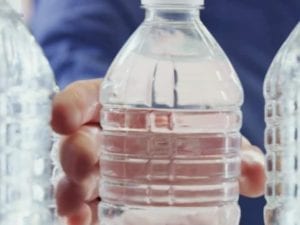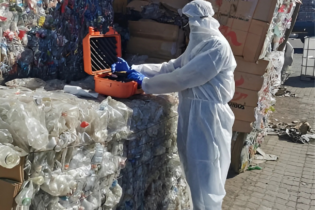In a few weeks, many South Africans will set off for their annual holiday. Sensible travellers will ensure their beach bags and hiking rucksacks contain sunscreens and hats to protect them and their families from the summer sun, and water to slake their thirst and fend off dehydration.
On average, 60% of an adult’s body weight is composed of water. As such, the liquid plays a key role in our body, helping our cells, our tissue and our organs to function. Bottled water is a healthy, guilt-free alternative to sugary carbonated beverages when it comes the delivering the hydration-on-the-go our bodies need during the warmer summer months. In addition, recycling the bottle can reduce its environmental footprint by 25% and ensure it does not contribute to marine pollution. This is the message from South African National Bottled Water Association (SANBWA) Executive Director, Charlotte Metcalf, who urges holidaymakers to heed the anti-littering billboards and posters officials will most certainly have erected in car parks, along boulevards and sidewalks, and on poles thrust into the beach sand itself. Metcalf pointed to Marine litter’s article dispelling the numerous myths and urban legends about marine litter. This lists several ways holidaymakers – especially beachgoers – can all play their part in tackling marine litter, while on holiday on the beach as well as everyday:
- Be an educated consumer – dispose of your waste in responsible manner so that it doesn’t end up in the ocean.
- Reduce your use of unnecessary single-use plastics by choosing reusable items, carry a shopping bag, use a reusable coffee cup and purchase less food wrapped in unnecessary plastics.
- Sort and recycle your plastics – recycled plastic means less plastic being produced and entering the environment. It seems obvious, but we could do a better job of it.
- Take on and/or support direct action – participate in a local recycling programmes or beach cleanups. Support international campaigns that help remove plastic directly from the environment and prevent it becoming marine litter.







